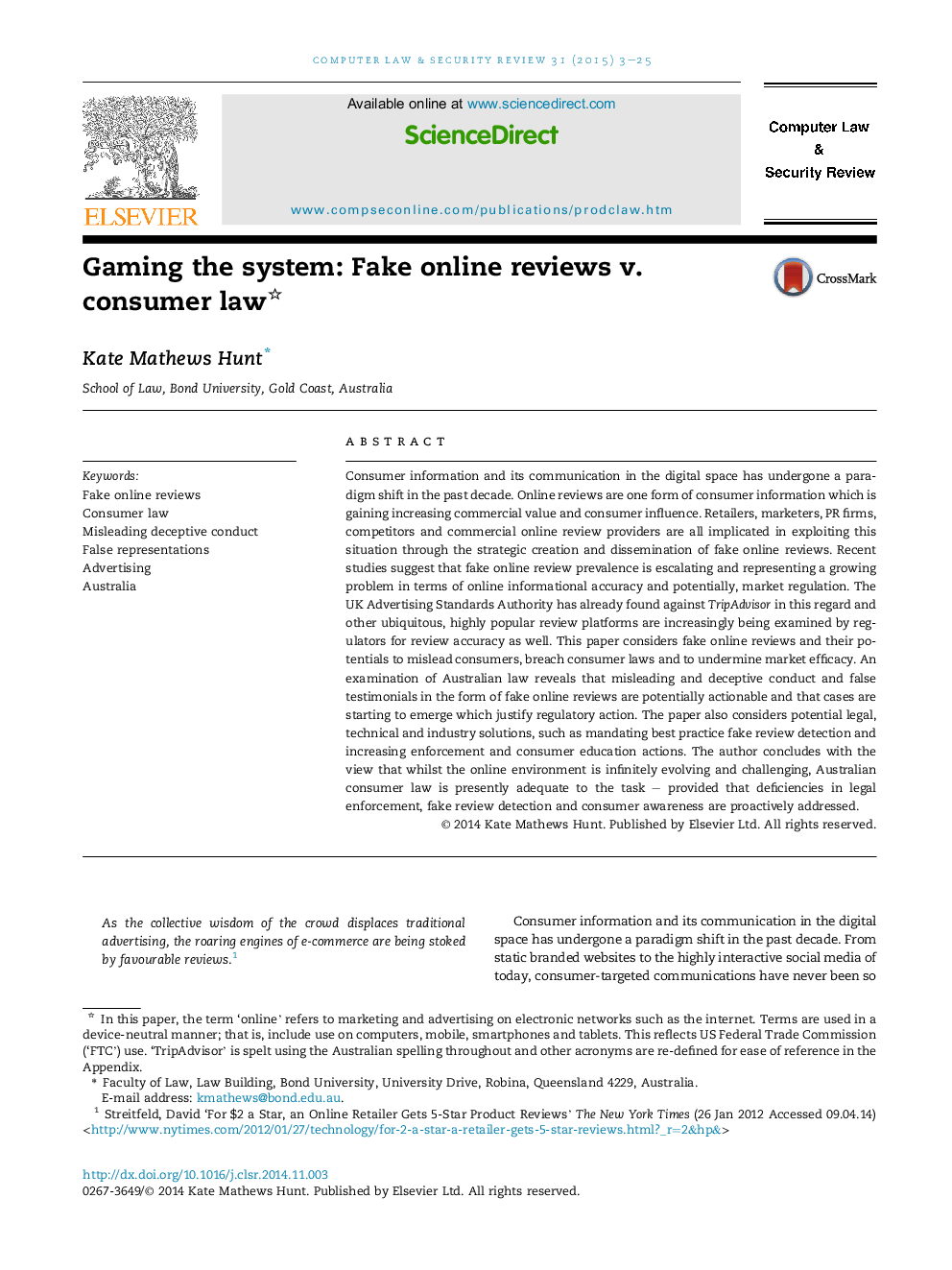| Article ID | Journal | Published Year | Pages | File Type |
|---|---|---|---|---|
| 466497 | Computer Law & Security Review | 2015 | 23 Pages |
Consumer information and its communication in the digital space has undergone a paradigm shift in the past decade. Online reviews are one form of consumer information which is gaining increasing commercial value and consumer influence. Retailers, marketers, PR firms, competitors and commercial online review providers are all implicated in exploiting this situation through the strategic creation and dissemination of fake online reviews. Recent studies suggest that fake online review prevalence is escalating and representing a growing problem in terms of online informational accuracy and potentially, market regulation. The UK Advertising Standards Authority has already found against TripAdvisor in this regard and other ubiquitous, highly popular review platforms are increasingly being examined by regulators for review accuracy as well. This paper considers fake online reviews and their potentials to mislead consumers, breach consumer laws and to undermine market efficacy. An examination of Australian law reveals that misleading and deceptive conduct and false testimonials in the form of fake online reviews are potentially actionable and that cases are starting to emerge which justify regulatory action. The paper also considers potential legal, technical and industry solutions, such as mandating best practice fake review detection and increasing enforcement and consumer education actions. The author concludes with the view that whilst the online environment is infinitely evolving and challenging, Australian consumer law is presently adequate to the task – provided that deficiencies in legal enforcement, fake review detection and consumer awareness are proactively addressed.
